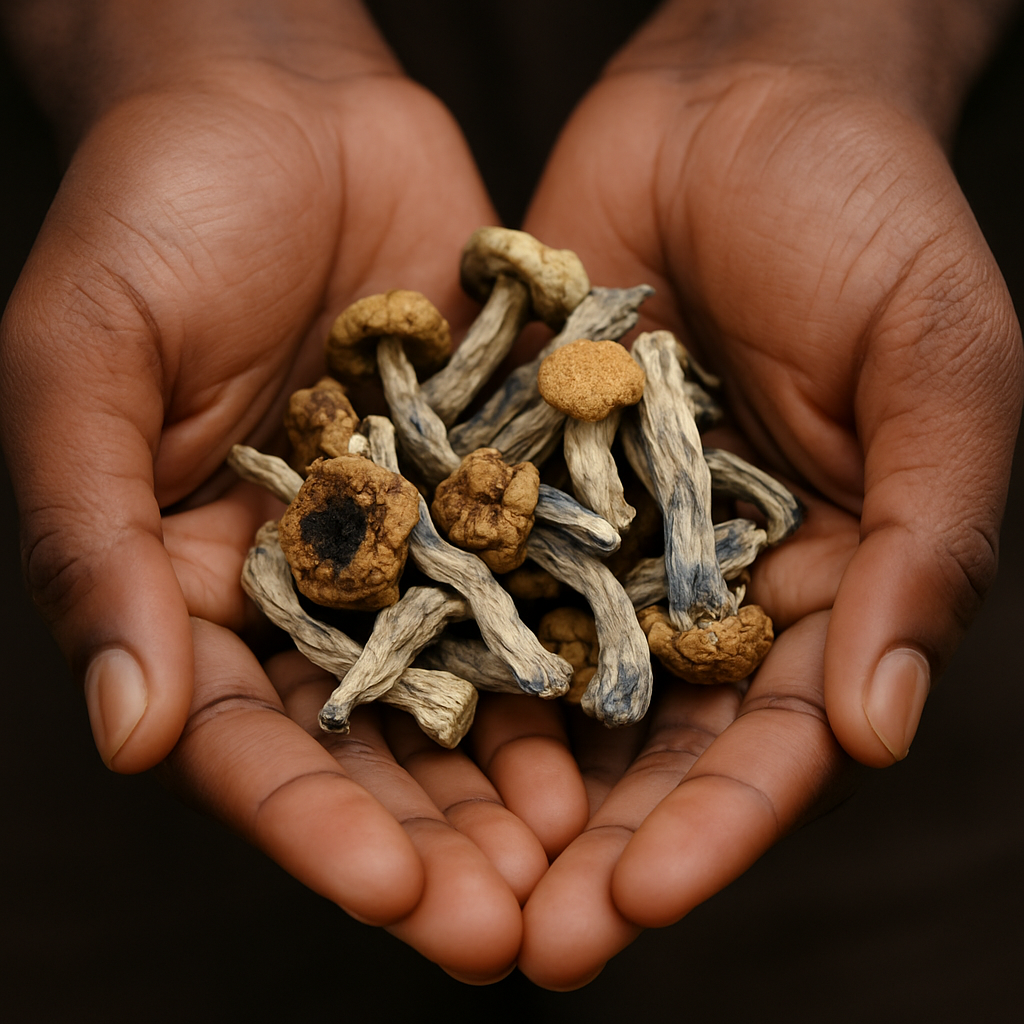By: Alisa Hannum, PhD
It’s an exciting time in Colorado. After two and a half years of hard work, countless meetings, and 51 years of advocacy, we are on the cusp of offering mushroom-assisted therapy legally (at least at the state level). For those of us who have been working and advocating in this space, there is a sense of hope—tinged with a bit of disbelief—that we’ve finally arrived at this moment.
Within the psychedelic-assisted therapy community, it’s often assumed this development will be a clear benefit to our clients, loved ones, and communities. But recently, as the space begins to open up, I’ve found myself confronted with the question of whether that assumption is valid. These moments have been helpful. They’ve reminded me that in pursuing deeper connection with this community, I’ve also entered the “bubble” that such communities inevitably create. Being asked to justify and defend my belief in this work has been an incredibly useful exercise. It has reminded me why I believe this matters—and where I need to remain humble.
What Is It Like To Journey–Describing the Indescribable
Not long ago, a professional contact—who is psychedelically naïve—asked me what psychedelic-assisted therapy is like, and why I’m interested in it. I launched into a detailed description of my most recent psilocybin-assisted journey. Now, in my defense, one of the challenges of this field is that it’s incredibly difficult to describe psychedelic experiences in words. Part of what makes these experiences powerful is that they move us beyond the limits of language, default-mode processing, and the cognitive domain. Still, I did my best.
I shared the imagery that arose during the journey and how it connected to trauma I had previously been dissociated from. I described the emotional intensity (from the outside, it looked like I was sobbing for four hours straight), and how it shifted my perception of myself. I talked about the insights I received—how the experience helped me recognize areas in my life where I was out of integrity and pointed me toward a path of right relationship. I described how overwhelming and life-shaking it was.
When I finished, the other person looked at me incredulously and said, “That sounds awful. Why the hell would I want to do that?”
Approaching the Space with Humility
Hmmm… Point taken.
That conversation—and others like it—has reminded me of the importance of treading lightly when talking about the benefits of psychedelic-assisted therapy. It’s a challenge, because those of us who believe in this work often feel it deeply. We’ve been shaped by these experiences in profound ways. People in the space talk about the healing they’ve received, the connection, the beauty, the poignancy—what it’s like to walk out of the crucible these medicines can create, a phoenix rising.
It’s natural, when this is your experience, to want to share it. But it’s also important to avoid the trap of the proselytizer.
If I’m being completely honest, the motivation that has carried me through the past 2.5 years of work toward becoming a licensed facilitator has been the belief that for a handful of my clients, medicine-assisted therapy might be transformational. While I hold this belief, I also recognize it’s shaped by my own bias—that for some people, the deep work of confronting and unraveling internal threads, negotiating with protective parts, and facing pain is at the heart of healing.
But that’s not true for everyone.
It’s Not for Everyone
Let me say this explicitly: mushroom-assisted therapy is not a panacea. Nor is it a requirement for healing and growth. It is absolutely possible to create transformation through therapy, time in nature, journaling, connection, yoga, meditation, prayer, art, movement, and so many other paths.
Mushroom-assisted therapy is also not a shortcut. The journey itself can be painful and grueling. I’ve done a lot of medicine work, and to this day, every time I prepare for a journey, it feels like standing at the edge of a cliff. What’s more, the most ethical practitioners in this space will tell you that any growth from a journey nearly always comes from the work done afterward—the integration—which often includes those very same practices I listed above.
So, Why Are We Doing This?
So yes, I believe in this work. I also believe that people should only consider mushroom-assisted therapy if they feel truly called to it. And I believe ethical facilitators must be clear about the risks:
- You may not have a psychedelic experience.
- You may have a psychologically difficult journey that overwhelms your system.
- You may experience lingering feelings, symptoms, or sensitivities that are difficult to integrate.
- You may undergo major shifts in your worldview and your relationships.
- Or—you may not experience any of the above at all.
In short: this work should not be taken lightly.
If you’re feeling called to it, I encourage you to sit with that calling. Reflect on your intention and motivation. Talk to an experienced (ideally licensed) facilitator about whether your reasons align with the work. Be patient. Strengthen your other practices—whatever they are—to prepare yourself. Ask yourself, Why am I doing this? And really listen to the answer.
